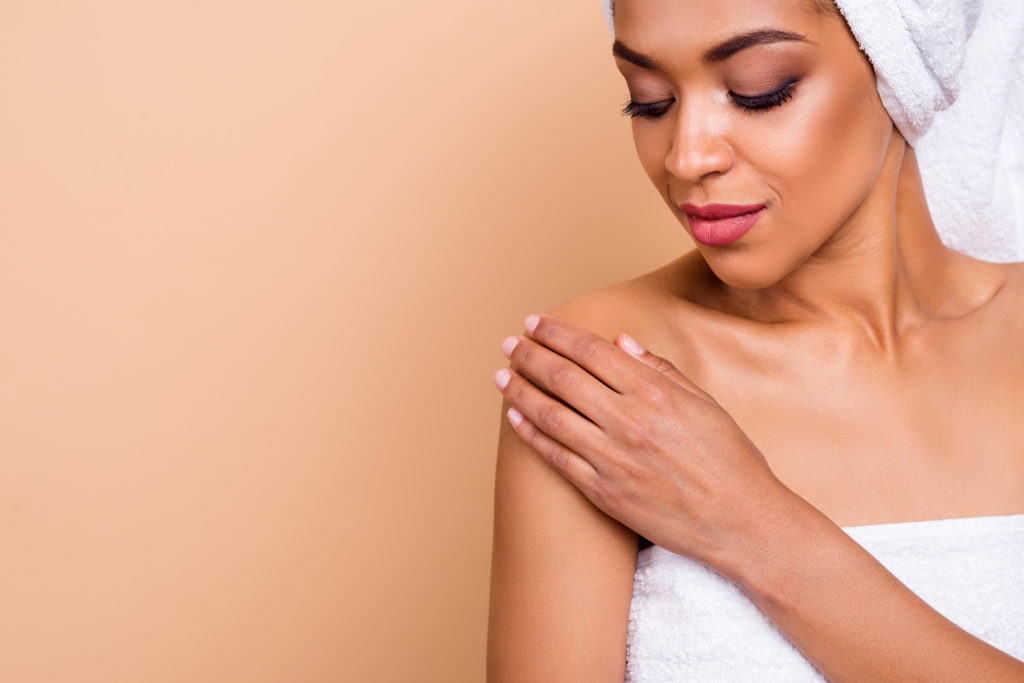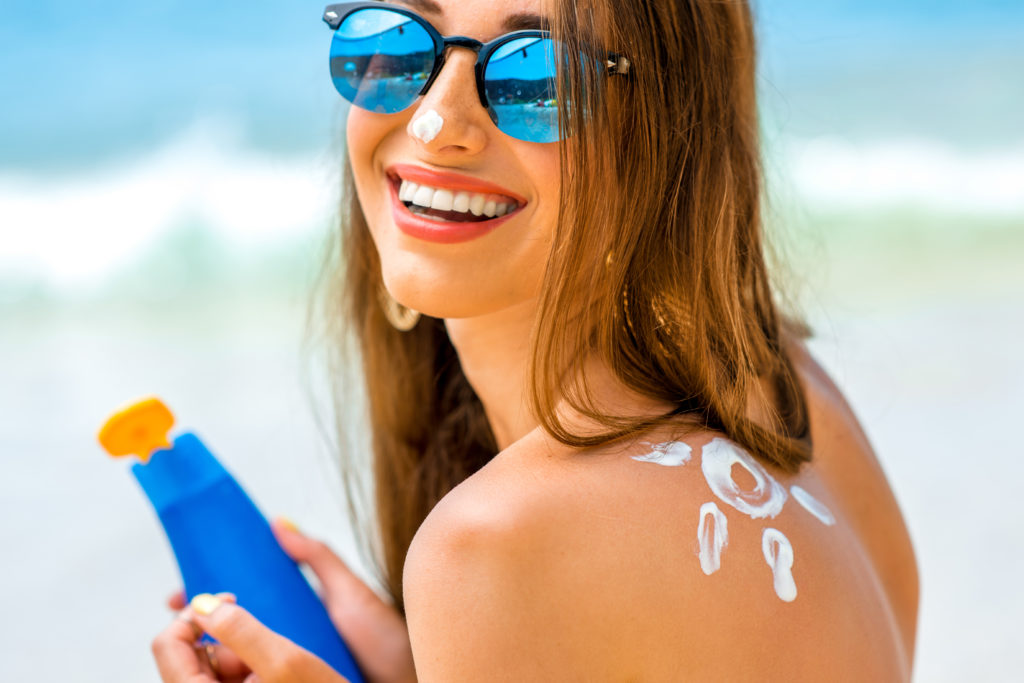July is UV Awareness Month
Did you know that your skin is the largest, and one of the most complicated, organs in your body? Our skin not only provides an airtight, watertight, and flexible barrier between our sensitive internal organs and the outside world, it also keeps us healthy by:
- Maintaining the balance of fluids in the body (bring in moisture or prevent moisture loss)
- Sensing pain to alert us to physical danger
- Regulating body temperature by insulating us in the cold and perspiring when we are hot
Skin is a wonderful, unique organ that protects us from disease, changes in temperature/humidity, impacts and abrasions, chemicals, and ultraviolet (UV) radiation. Sadly, even though our skin is protecting us daily, we often neglect what we need to do to protect it.
Since July is UV Awareness Month, let us talk about the dangers of UV rays, what we should be doing to protect ourselves, and how to maintain healthy, happy skin.

Why Protect Our Skin?
The sun is essential to life on earth, as it warms our planet, sends solar energy for plants to grow, and creates day and night for animals to thrive. Sunlight is also a great source of happiness and vitamin D for us; however, too much sunlight can be harmful.
The sun is the primary source of UV radiation, which is divided into three types of rays:
- UVA – these rays can cause skin cells to age, indirect damage to cells’ DNA, and long-term skin damage, including wrinkles. They penetrate most deeply into the skin and are a factor in some skin cancers
- UVB – these rays have slightly more energy than UVA rays, can cause direct damage to cells’ DNA, and are the main rays causing sunburns and most skin cancers
- UVC – these rays have the shortest wavelength and typically react with ozone, so they do not reach the ground; however, they can also come from some man-made sources (e.g., UV light bulbs)
Prolonged exposure to UV radiation can lead to vision issues, skin cancer (melanoma), premature aging of the skin (wrinkles!), skin damage in the form of liver spots, actinic keratosis (rough skin patches that can be precancerous), or solar elastosis (dry, thickened, and wrinkled skin), and even a suppressed immune system.
With all these potential, carcinogenic issues from UV radiation, what should we do to protect our largest organ and maintain healthy skin?
How to Protect Your Skin
There are several steps you should take regularly to protect against UV radiation and support healthy skin, including:
- Wear sunglasses – make sure they have UV protective lenses (polarized are great) and are large to offer more protection from light entering your eyes at different angles
- Stay in the shade and minimize sun exposure between 10 a.m. to 4 p.m. – UV rays are strongest between these hours
- Cover your skin with long-sleeved shirts, pants, hats, and other shade-protective clothing – a physical blocker is one of the best ways to ensure your skin is not receiving direct exposure to UV radiation
- Avoid tanning beds and black-light lamps – these devices emit UV radiation, mostly UVA rays, and can be especially damaging depending on light strength and time exposed
- Apply sunscreen daily and often – use a mineral sunscreen with an SPF (Sun Protection Factor) of at least 30, every two hours
Also, even on cloudy days, much of the UV radiation from the sun is reaching the ground, so you should remember the above steps regardless of whether it is sunny or overcast!

Using Sunscreens Effectively
One of the best ways to protect your skin is to wear a physical (mineral) sunscreen every single day. Physical sunscreens contain mineral particles that sit on top of your skin, creating a physical barrier between your skin and the sun, and reflect/deflect UV rays. Mineral sunscreens typically contain zinc oxide and titanium dioxide – if you do not see these ingredients, you may be using a chemical sunscreen, which you should avoid!
Chemical sunscreens have compounds, some of them carcinogens, that are absorbed into your body. These chemicals have been shown to be toxic, disrupt hormones, generate allergic reactions, and even cause cancer. Also, chemical sunscreens are extremely damaging to nature and a leading cause destroying our coral reefs, as the compounds damage coral DNA, disrupt coral reproduction, and result in coral bleaching.
Another important factor in choosing a sunscreen is the SPF, or Sun Protection Factor, which, as defined by the FDA, is “a measure of how much solar energy (UV radiation) is required to produce sunburn on protected skin relative to the amount of solar energy required to produce sunburn on unprotected skin.” The higher the SPF rating, the greater the protection from UV rays. The American Academy of Dermatology recommends that you use a sunscreen with an SPF of 30 or higher; however, I recommend you using a sunscreen with at least an SPF of 45, especially in the summertime, and apply it daily as part of your morning routine. Also, if you are in the sun for prolonged periods, do not forget to reapply sunscreen at least every two hours!
In summary, protect yourself (and the environment!), by using a mineral sunscreen, with an SPF of at least 45, and apply every day as part of your morning routine, regardless of whether it is sunny or cloudy.

Protect Your Skin All Year, Not Just July
UV Awareness Month is a good reminder to protect our skin this summer, but we should be protecting it daily, regardless of the time of year. Healthy skin is crucially important to our overall health and has been shown to directly impact our emotional and mental health. Keeping our skin healthy can reduce stress, anxiety, and even depression, besides helping to ensure our largest organ protects us.
Always remember to protect your skin, as this will lead you to look, feel, and be healthier!
How Can We Help?
Legal and Privacy
Quick Contacts
- (630) 884-4449
- Questions@mirror.care
-
Mirror Care Pharmacy 17W535 Butterfield Rd Suite 001
Oakbrook Terrace, IL 60181
Receive Updates from Mirror Care
- Copyright 2026 Self Therapeutics, LLC


Leave a Reply